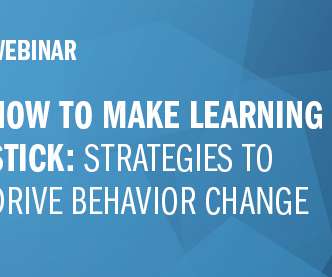The ROLE of Emotional Intelligence in Effective Leadership Today
The Center For Leadership Studies
NOVEMBER 23, 2020
In this time of unrest and change, the role of Emotional Intelligence (EI) in leadership has emerged as the critical skill set for leaders. That sounds like a solid case for Emotional Intelligence training and coaching for leaders if I ever heard one! The EQ Edge: Emotional Intelligence and Your Success.














Let's personalize your content